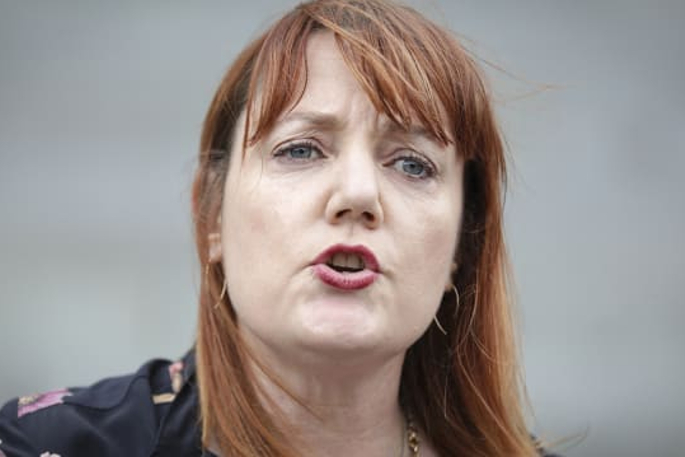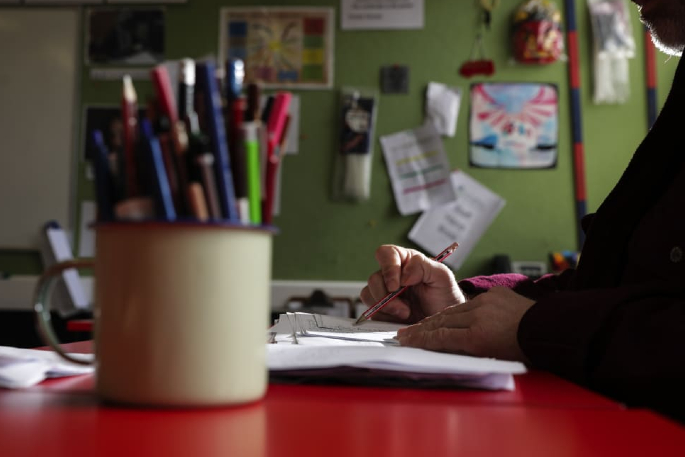In a surprise move, the government wants to cut a senior teaching role nationwide so it can cover a hole in its budget.
It wants to let 3119 fixed-term "within-school teacher" contracts expire so it can avoid a $12-million-a-year "funding cliff" at the end of the 2022-23 financial year.
The $8000-a-year contracts are part of the Communities of Learning/Kāhui Ako scheme which involves 1800 schools and costs more than $100m a year.
Budget documents showed the government previously reprioritised money away from the scheme because of repeated under-spends and a 2019 moratorium that prevented more schools joining it.
But since then costs had increased, creating a shortfall the government covered in this year's Budget only until the end of June 2023.
The documents say the Education Ministry would "explore the option of reducing the number of Kāhui Ako - Communities of Learning - roles. The likely impact would be not renewing fixed term agreements for Within School Kāhui Ako roles. This would reduce the future funding pressure."
The roles were part of teachers' collective agreements so the ministry must negotiate any changes with teacher unions the Educational Institute and the Post Primary Teachers' Association.
Principals contacted by RNZ says they were not aware of the ministry's plan and warned the within-school roles were critical to their work.
The lead principal for a Nelson Kāhui Ako, Nayland College principal Daniel Wilson, told RNZ the proposal was "very concerning".
"We would have significant issues with continuing the Kāhui Ako in any form without the within-school-teacher positions available.
"Our WSTs act in a coaching role that is central to our strategy to improve student outcomes. This would completely fall over without these positions and the work of the Kahui Ako would have to be significantly reviewed and possibly disbanded."
The lead principal from a Dunedin Kāhui Ako, Northeast Valley Normal School principal John McKenzie says the within-school role was an integral part of the overall scheme.
"The in-school teachers lead a school staff in putting the overall aims of the Kāhui Ako into reality in a school setting. If the in-school component is removed, the structure is in jeopardy of collapse at worst and diluted at best."
However, Wilson says not all Kāhui Ako were working well and if they were disbanded he hoped the funding for the scheme would be retained and redistributed so successful projects could continue.
Post Primary Teachers Association president Melanie Webber says it was not happy the proposal had been made without any consultation.

Post Primary Teachers Association president Melanie Webber. Photo: RNZ/Rebekah Parsons-King.
"These roles are highly valued in Kāhui Ako and central to them. This would be a short-sighted cost-cutting exercise."
Webber says it was agreed in 2014 that the number of roles would be reviewed to ensure they kept pace with changes in the number of children in schools.
"Since 2014 rolls have increased by nearly 8 percent so any change to the number should be to reflect that increase," she says.
The Educational Institute says: "The future of the roles is a matter for collective negotiations that are currently under way and will ultimately be up to members to decide.
"However, our focus from the beginning of the Kāhui Ako policy has been to advocate for more local flexibility in the use of Kāhui Ako resourcing and for more focus on the time (rather than pay) teachers (including Early Childhood Education teachers) need to engage in professional learning and development together."
The Education Ministry says any outcomes from the collective agreement negotiations beyond June 2023 would be funded.
It did not explain why the within-school roles were selected for a cut and what effect it would have on Kāhui Ako.
Despite the decision to seek an end to the within-school teacher role, a briefing paper from July last year showed the government was keen to expand the scheme.
It says Education Minister Chris Hipkins was of the view that "ideally Kāhui Ako should be broadened and become more flexible to enable the 23 percent of schools not in a Kāhui Ako to form clusters, as well as allowing those schools already in a Kāhui Ako to reorganise themselves should they choose."
The document says the ministry would discuss with education sector groups possible changes to the scheme's rules such as what goals they could set and how they were organised.
"The Ministry supports the aim of finding flexibility in these areas of the Kāhui Ako model so that participation in a collaborative network becomes the norm for all education
providers in the education system," it says.
The document showed Investing in Educational Success was expected to cost about $153 million per year, but underspends and a 2019 moratorium on schools joining the scheme helped reduce that figure to $103 million per year.
"If there was any interest in lifting the moratorium and reverting to the original 250 Kāhui Ako, preliminary estimates suggest the programme cost could increase up to $184 million per annum," it says.



6 comments
A hole in the budget.
Posted on 27-08-2022 12:26 | By morepork
I had to smile when I read that our profligate and financially reckless Government, suddenly realized there was a "hole "in their budget, with $100 million a year being wasted on some doubtful value PC nonsense. Why don't they just print some more money (or borrow it...) as they usually do? Never thought I'd see Labour officially recognize a budget overrun...
Enter Stage Right
Posted on 27-08-2022 14:49 | By Ceem
I can just imagine David Seymour, Christopher Luxon and their teams winding up on this very sensitive topic. Meanwhile, the Greens will watch from the wings.
A perfect quote
Posted on 27-08-2022 14:58 | By Kancho
The problem with socialism is that you eventually run out of other people's money. Margaret Thatcher The problem with socialism is that you eventually run out of other people's money. Margaret Thatcher Margaret Thatcher — 'The problem with socialism is that you eventually run out of other people's money. Are this lot really that brave to wind back ideological spending or continue to poorly prioritize on far more essential needs
Hahaha
Posted on 27-08-2022 18:52 | By Slim Shady
It’s good to see Labour cutting back instead of wasting my money. There’s no point having 3000 teachers twiddling their thumbs because no Kiwi kids actually go to school. The attendance rates say it all. Not surprisingly so do the literacy and numeracy levels. Compared to OECD peers, Kiwis are “a bit thick” it seems. As proven by installing the dumbest Government in history. Not once, but twice. Hahaha. Kancho, great quote from Maggie. And so true.
Simple
Posted on 27-08-2022 19:23 | By Johnney
Stop spraying the money around on non sensible rubbish, that will pay for the shortfall. Can 3 waters, Te pua pua and all the other stupid ideas out there.
Thanks Slim...
Posted on 29-08-2022 13:28 | By morepork
... I smiled (ruefully) at your "dumbest government" jibe. I can't refute it. I lived in London for all of Thatcher's time and she was an amazing woman. (I saw her famous "U turn" speech and it still moves me...) Everybody hated her, but she never let it deflect her from doing what she knew needed to be done. For her, it was not about popularity, it was about governing. Sadly, our own PM (whom I have some respect and regard for, but will never vote for) is made of less stern stuff. It's no wonder Labour don't want Democracy; we might get the government we deserve...
Leave a Comment
You must be logged in to make a comment.